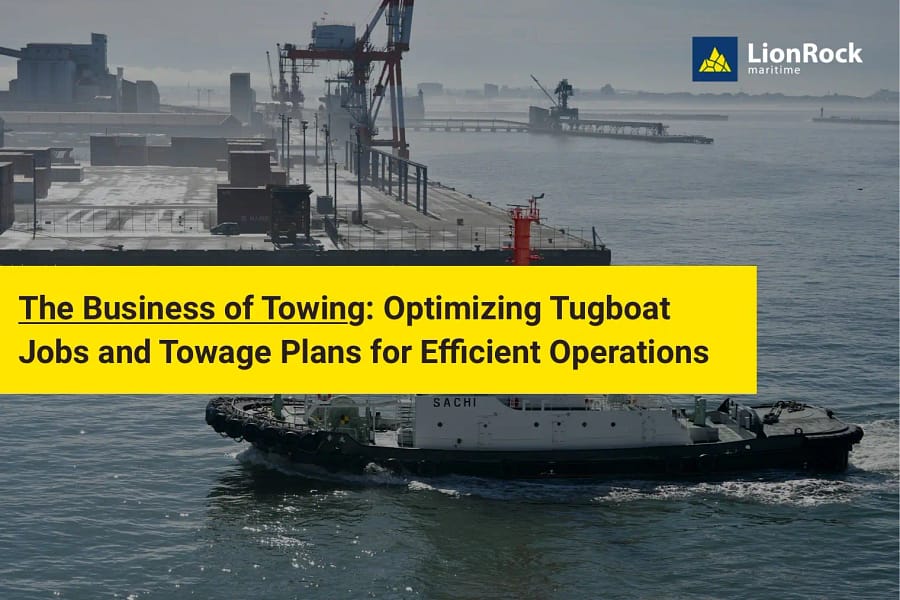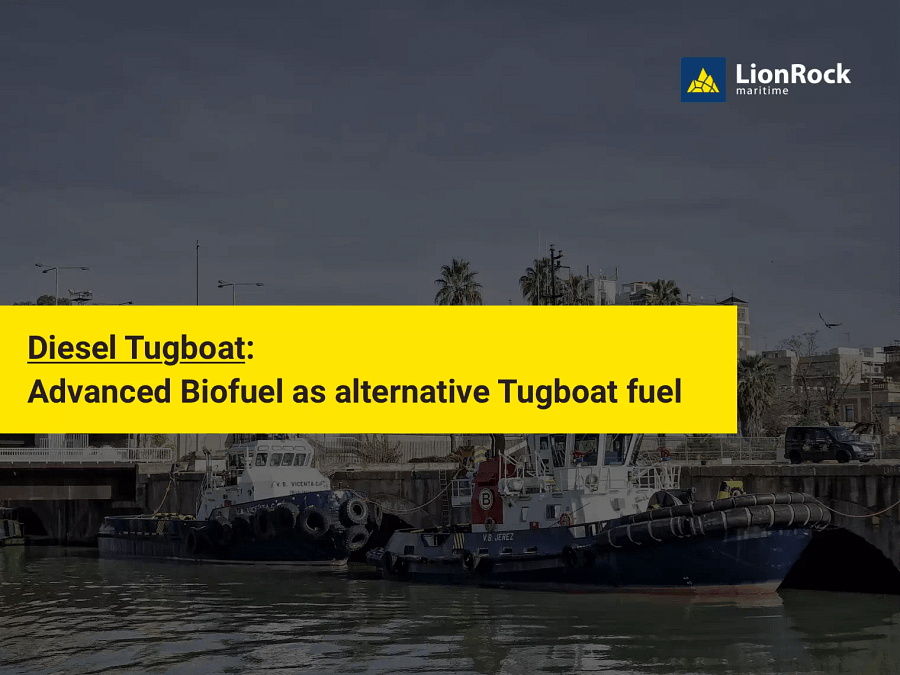Efficient Tugboat Fleet Management Analytics: Implementing a Tugboat Tracker System
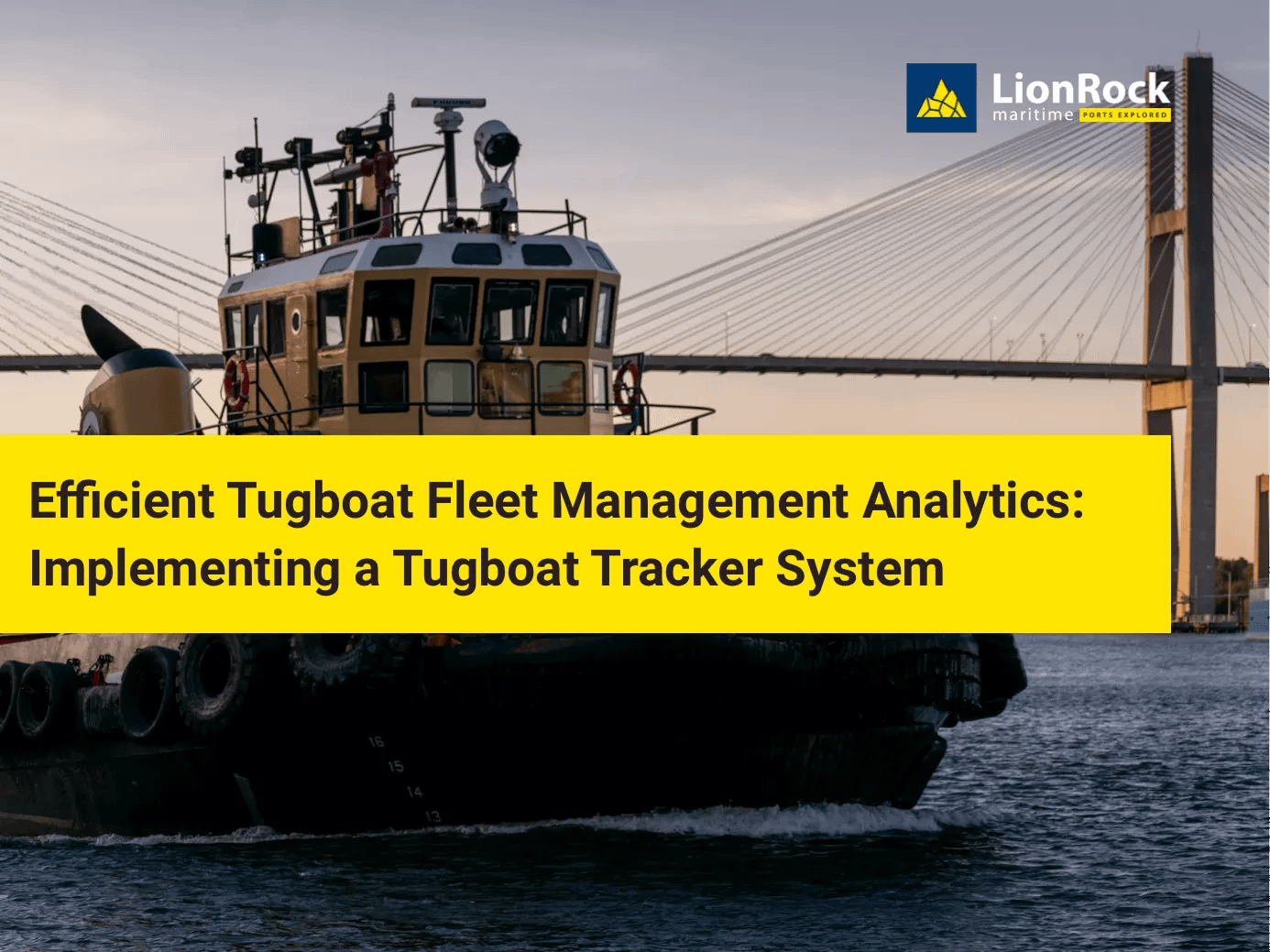
- Optimizing Tugboat Operations: The Power of Advanced Fleet Management Analytics
- Ensuring Efficient Maneuvering of Tugs in Fleet Management
- Comprehensive Fleet Management Analytics Solution by LionRock
- Conclusion
- Maximize Fleet Efficiency with LionRock's Tugboat Analytics
- Why is data considered essential in tugboat fleet management, and how can a tugboat tracker help?
- How does fleet management analytics contribute to environmental sustainability?
- What competitive advantages does data analytics offer in the maritime industry?
- How does fleet management analytics contribute to fleet efficiency?
Optimizing Tugboat Operations: The Power of Advanced Fleet Management Analytics
Introduction: The Power and Promise of Data in Fleet Management Analytics
In line with the adage: “what gets measured gets managed”, it is essential for fleet managers to start measuring their performance to improve. Data has entered the industry and those who do not adapt risk falling off. By proactively addressing these aspects, operators can position themselves to effectively harness the power of data analytics for tugboat operations, leading to improved efficiency, safety, and environmental sustainability.
Data analytics provides valuable insights into the performance of vessels, allowing managers to monitor essential parameters like fuel consumption, engine health, and maintenance needs, facilitating proactive interventions to avoid potential issues. However, it’s crucial to recognize that measuring success solely through absolute metrics, such as fuel consumption, can be misleading. For instance, fuel consumption, as an absolute measure, is meaningless without considering factors like distance travelled, cargo weight, and weather conditions. Hence, a more meaningful approach involves analyzing fuel efficiency with these contextual cues in mind.
Moreover, critical information about vessels aids managers in assessing fleets and identifying areas for improvement. The larger the fleet, the greater the potential for improvement. This encapsulates the power and promise of utilizing data for efficient fleet management. To measure success effectively, it’s essential to not only track absolute metrics, but also to delve into relative performance indicators and contextual factors that drive efficiency and sustainability.
This article explores the transformative power of data analytics in tugboat operations, discussing how it can:
- Reduce fuel consumption and cut operational costs through optimized sailing speeds, route planning, and maintenance schedules.
- Gain real-time transparency into fleet performance, empowering informed decision-making and fostering accountability.
- Stay ahead of the curve in an increasingly competitive landscape by leveraging predictive analytics and streamlined processes.
- Navigate towards a sustainable future by minimizing greenhouse gas emissions and adhering to evolving environmental regulations.
- Lastly, we’ll delve into practical solutions and introduce a user-friendly data analytics toolkit designed to help you harness the potential of data.
Ensuring Efficient Maneuvering of Tugs in Fleet Management
Optimizing Fuel Consumption
Data analytics plays a crucial role in evaluating fleet management, an essential aspect for performance improvement. One notable area is fuel consumption optimization. Leveraging insights from past performance and real-time information, data aids in identifying patterns in fuel usage and optimizing operational strategies to minimize consumption. For tugboats, which operate in a variety of conditions and tasks, understanding fuel efficiency can lead to significant cost savings and environmental benefits. By analyzing data on engine performance, load conditions, and operational contexts, fleet managers can develop strategies to optimize fuel usage without compromising operational effectiveness. The direct benefits of improving fleet management include reduced energy consumption, significant fuel savings, cost reduction, and lowered greenhouse gas emissions. Moreover, efficient maneuvering plays a critical role in overall fleet performance, underscoring the importance of data-driven optimization across various operational aspects.
Enhancing Tugboat Maneuverability and Operational Safety
However, improving the operation of tugboats requires an in-depth understanding of their maneuvering characteristics. The duration of active maneuvering services can be determined using real data, and these crucial time points enable optimization of the timetable. This measure extends to sailing speed, which can mitigate the risk of speeding and enhance safety during operations. For instance, analyzing data on tugboat speeds can inform the development of more efficient maneuvering strategies, contributing to overall operational efficiency and cost savings. Such measures should be undertaken carefully, considering the variability in tugboat energy consumption based on various factors. In the context of the light sailing to operational time ratio, skippers often maintain unnecessarily excessive light-sailing speeds, which can be addressed through data-driven feedback mechanisms.
Promoting Continuous Improvement with Data-Driven Feedback
Constructive feedback based on data can engage captains, helping them improve their sailing speed and maneuvering techniques. This approach doesn’t necessarily lead to micromanagement; rather, it serves to make captains aware of their habits and sailing patterns, fostering a culture of continuous improvement and accountability. Additionally, data provides managers with a transparent overview of their fleets, crucial for informed decision-making. Real-time visibility through fleet management analytics offers a window of transparency, facilitating optimized resource allocation and operational processes by providing vital feedback. In conclusion, by harnessing the power of data-driven insights, fleet managers can make informed decisions, improve operational performance, and achieve cost savings while minimizing environmental impact.
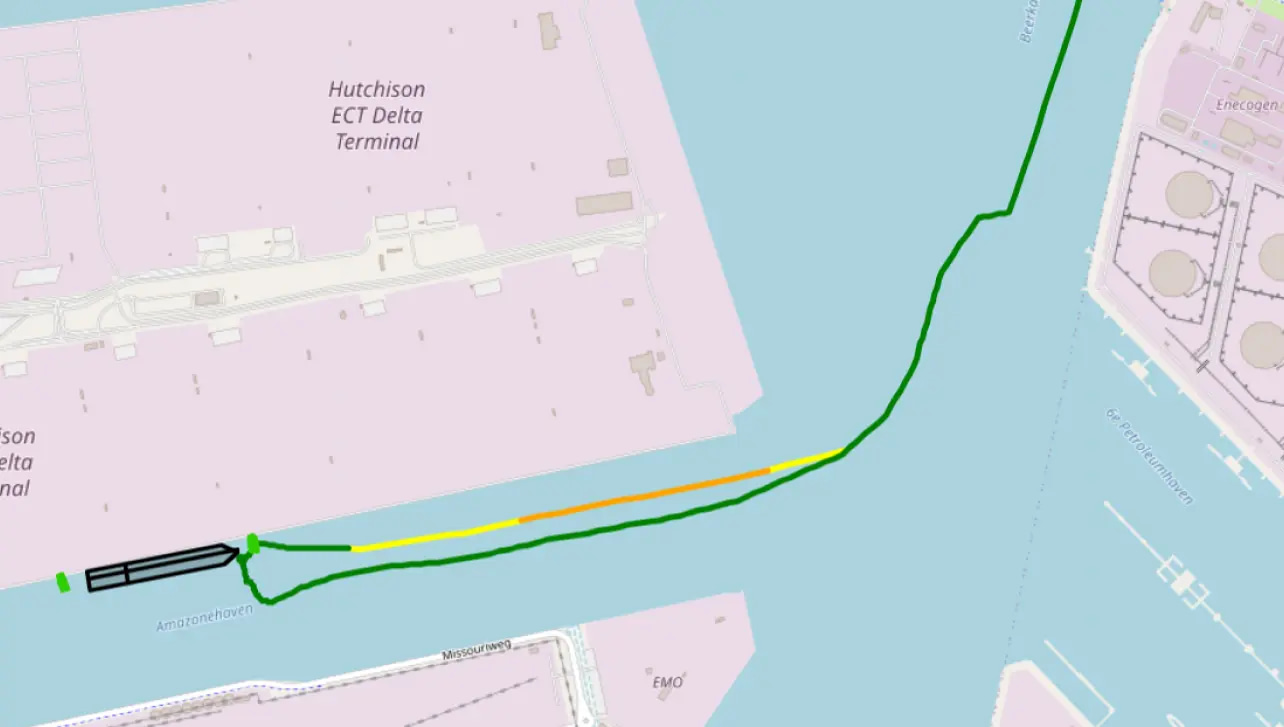
Comprehensive Fleet Management Analytics Solution by LionRock
Analyzing Fleet Performance: A Comprehensive Data Approach
Similar to the act of fleet management requiring a range of responsibilities, the data informing its performance is both complex and essential. Covering aspects from maintenance to deployment and beyond, it is evident that data plays a crucial role. By unraveling the ‘black box’ of fleet performance, managers can take a look into the state of their performance. However, the challenge lies in selecting what to monitor and comprehending the information provided. Furthermore, interpreting and acting upon this data proves equally complex. Over the past months, LionRock has been identifying the measures for fleet efficiency, many of which are directly actionable. The solution? A well-organized toolkit, focusing on identifying the key factors that drive fleet efficiency.
Operational Efficiency through Data-Driven Strategies: The LionRock Methodology
Functioning like a roadmap, the solution emphasizes different efficiency aspects such as fuel usage influenced by sailing speeds, river currents, and the delicate balance between light sailing and operational sailing (as is visualized by the figure). Using a clear-cut approach, the solution aims to understand and enhance the fleet performance with data, an essential need in today’s market. Beyond providing tools for fleet management data analytics, the solution facilitates a clear understanding of operations. It’s not just about having data; it’s about leveraging it to run a more efficient ship.
You can schedule a meeting with our representatives and get a consultation on how you can achieve a better operational efficiency: Schedule a Call now.
Conclusion
In line with the adage: “what gets measured gets managed”, it is essential for fleet managers to start measuring their performance to improve. Data is entering the industry at a fast rate, and those who do not adapt risk falling off. The integration of fleet management analytics into tugboat operations holds the promise, not just of efficiency improvements, but also advancements in safety practices and contributions to environmental sustainability. By proactively embracing technology and developing analytical capabilities, operators can position themselves to effectively harness the potential of data analytics, thereby preparing for the future of port operations.
Maximize Fleet Efficiency with LionRock's Tugboat Analytics
Leverage LionRock Maritime’s Tugboat Tracker System for unparalleled fleet management. This system, alongside our new product under development for precise analytics of individual tugboats, enables optimized performance, safety, and sustainability. Benefit from real-time insights, predictive analytics, and compliance with environmental standards. Transform your operations and navigate towards success with our innovative maritime solutions. Discover more at LionRock Maritime.
Interested in maximizing the performance of your tugboat fleet? Learn more about how fleet management analytics and LionRock’s tugboat tracker can transform your operations today!
Frequently Asked Questions
Why is data considered essential in tugboat fleet management, and how can a tugboat tracker help?
How does fleet management analytics contribute to environmental sustainability?
What competitive advantages does data analytics offer in the maritime industry?
How does fleet management analytics contribute to fleet efficiency?
Related Posts
How to Become a Tugboat Captain: A Comprehensive Guide | 2025
A Comprehensive Guide to a Rewarding Career in Maritime Operations How to become a Tugboat Captain Becoming a tugboat captain is more …
Shipping Alliances: Gemini Cooperation shifts tugboat demand in 2025
How Shipping Alliance Restructuring and Market Insights Shape Tugboat Demand and Fleet Optimization Introduction – Change Within Shipping Alliances and Its Impact …
The Business of Towing: Job Costing Insights
Cost to serve on tugboat jobs In the competitive world of maritime services, understanding the cost to serve is crucial for towage …
Diesel Tugboats and Advanced Biofuel: An In-Depth Look at the Integration of Biodiesel
Introduction – Biofuel to power diesel tugboats The maritime industry is undergoing a significant transformation as the European Green Deal and the …




